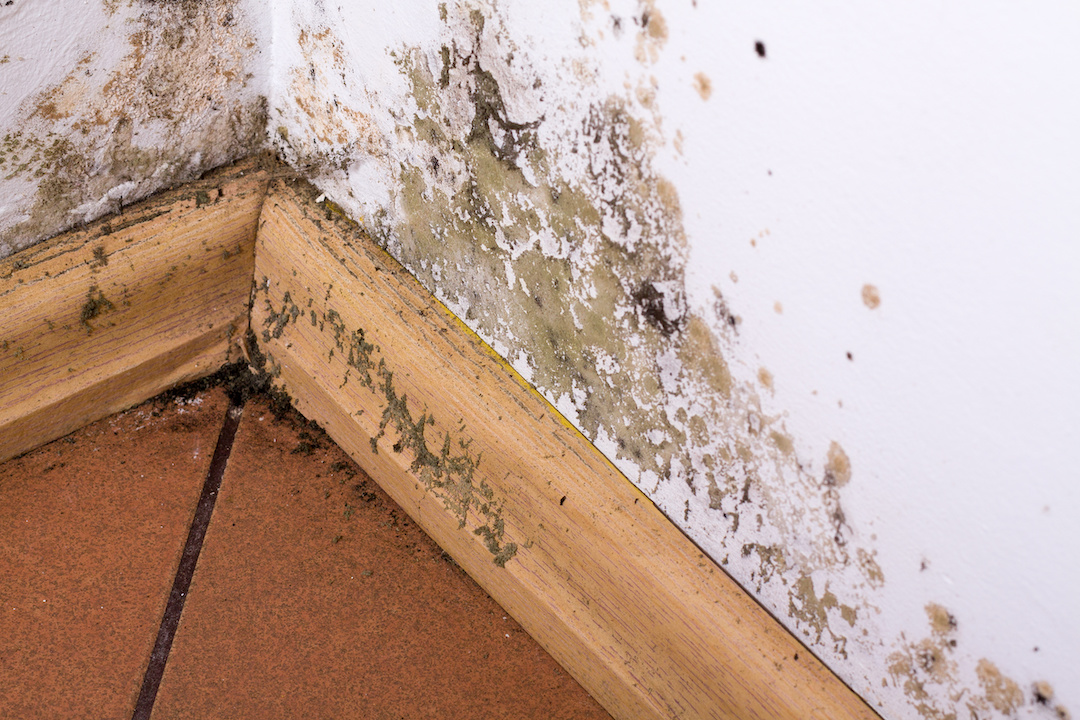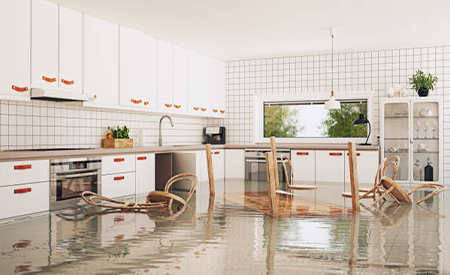Quick Response Emergency Water Leak Repair for Residential and Commercial Needs
Quick Response Emergency Water Leak Repair for Residential and Commercial Needs
Blog Article
The Process of Water Damage Clean-up: Ensuring Your Home Is Recovered Successfully
Water damages can be an overwhelming obstacle for home owners, demanding a organized and precise cleaning process to restore safety and security and capability. Originally, an extensive assessment is essential to recognize the degree of the damages and identify the appropriate removal steps. Following this, reliable water removal techniques play a crucial function in minimizing additional injury. The nuances of drying, disinfecting, and ultimate reconstruction are just as vital and frequently overlooked. Recognizing these stages can make a substantial difference in the end result of your home's remediation, motivating a closer appearance at what each step involves.
Examining the Damages
Upon finding water damage, the first step is to thoroughly examine the extent of the effect. This initial assessment is important, as it assists determine the required actions for efficient cleaning and remediation. Begin by inspecting the influenced areas, consisting of wall surfaces, ceilings, floorings, and personal possessions, to determine the resource of the water invasion, whether from flooding, leaks, or condensation.
Documenting the damages is important for both insurance coverage cases and intending restoration initiatives - damage restoration services. Usage pictures and composed notes to catch the seriousness of the damages, noting any affected structural aspects and products. Pay special interest to locations that might not be immediately visible, such as behind walls and under carpetings, as concealed dampness can bring about additional difficulties, consisting of mold development
In addition, examine the timeline of the water exposure. Ultimately, an extensive analysis lays the groundwork for a successful water damage clean-up process, making certain that all affected locations are addressed successfully and thoroughly.
Water Extraction Strategies

Specialists usually employ submersible pumps for larger quantities of water, which can quickly ease flooding in basements or other impacted locations. For smaller sized quantities, wet/dry vacuum cleaners are typically utilized to draw out residual wetness from carpets and difficult surfaces. Furthermore, making use of portable extractors enables for targeted elimination in restricted rooms or locations with delicate products.
In circumstances of contaminated water, such as sewage or floodwater, progressed extraction strategies may involve making use of biohazard devices to ensure security and conformity with health and wellness laws. High-powered extraction devices are critical in reducing water retention in architectural materials, which can result in mold and mildew development and architectural deterioration otherwise resolved without delay.
Eventually, the performance of water removal strategies plays a critical function in the total success of the water damage clean-up procedure, laying the foundation for subsequent reconstruction initiatives.
Drying and Dehumidification
As soon as standing water has been efficiently extracted, the following important phase in the water damages cleaning procedure is drying out and dehumidification. This step is necessary to stop more damages and mold development, which can happen within 24 to 2 days in moist settings.
To accomplish efficient drying out, customized devices such as industrial-grade air moving companies and dehumidifiers is employed. Air movers flow air throughout damp surfaces, enhancing evaporation rates, while dehumidifiers lower humidity degrees airborne, promoting a conducive setting for drying out. The mix of these tools guarantees that moisture is extracted from furnishings, floorings, and wall surfaces, allowing them to completely dry completely.
It is very important to keep track of the drying process closely. Experts typically make use of moisture meters to assess the dampness material in numerous products, making certain that all affected locations reach acceptable dryness degrees. This careful approach aids to stop covert moisture pockets that can bring about architectural damages or unhealthy mold growth.

Cleansing and Sterilizing
After the drying and dehumidification stage is complete, the next vital action in water damages clean-up is cleansing and sterilizing the influenced locations. This process is crucial to stop the development of mold and mildew, bacteria, and other virus that thrive in damp atmospheres.
The cleaning phase generally entails getting rid of any type of debris, dust, and contaminants from surface areas using specialized cleansing agents. For hard surface areas, a combination of soap and water or business cleaning items is typically utilized. Soft materials, such as furniture and rugs, may need much more considerable cleaning methods, including vapor cleansing or deep extraction methods, to make certain thorough cleanliness.

Sterilizing complies with cleaning, utilizing EPA-approved disinfectants to eliminate hazardous bacteria. This step is crucial, especially in locations that might have come right into call with floodwaters or sewer, as these resources can position serious health and wellness threats.
In addition, it is essential to address any type of remaining odors, which might require using odor neutralizers or advanced methods like ozone treatment. Appropriate cleaning and disinfecting not just restore the safety and security and health of your home but likewise lay the groundwork for effective restoration and repair work in succeeding stages of the water damage clean-up procedure.
Remediation and Repairs

When the assessment is full, repair initiatives can begin. This commonly entails fixing or changing broken products, making sure that all work conforms with local building ordinance and standards. If drywall has actually been jeopardized, it will certainly need to be removed and replaced with new material. In addition, floor covering may call for similar focus, depending upon the degree of water exposure.
It is essential to engage seasoned repair professionals throughout this process, as they have the know-how to deal with complex repair services successfully. In addition, they can help reduce potential future issues, such as mold growth or architectural instability, thus making certain a habitable and risk-free living atmosphere. Inevitably, reliable repair and fixings recover the home's stability and improve its total value.
Verdict
To conclude, the procedure of water damages cleaning is essential for recovering a home to its pre-damage condition. Each stage, from analyzing the damage to applying water damage test effective water removal techniques, followed by complete drying, disinfecting, and needed repair work, plays a crucial function in making sure safety and security and conformity with structure standards. Effective execution of these steps not just minimizes prompt damages however additionally enhances the lasting honesty and value of the residential or commercial property.
Water damages can be a daunting challenge for home owners, requiring a precise and structured clean-up navigate here procedure to restore safety and performance. Inevitably, a comprehensive assessment lays the foundation for a successful water damages cleanup procedure, ensuring that all influenced locations are attended to efficiently and thoroughly.
Reliable water extraction strategies are necessary in alleviating damage and avoiding additional problems adhering to a water invasion occasion.In conclusion, the procedure of water damage cleanup is important for recovering a home to its pre-damage problem. Each stage, from evaluating the damages to applying effective water extraction methods, adhered to by extensive drying, sterilizing, and necessary repair services, plays an essential role in making sure safety and security and conformity with structure standards.
Report this page